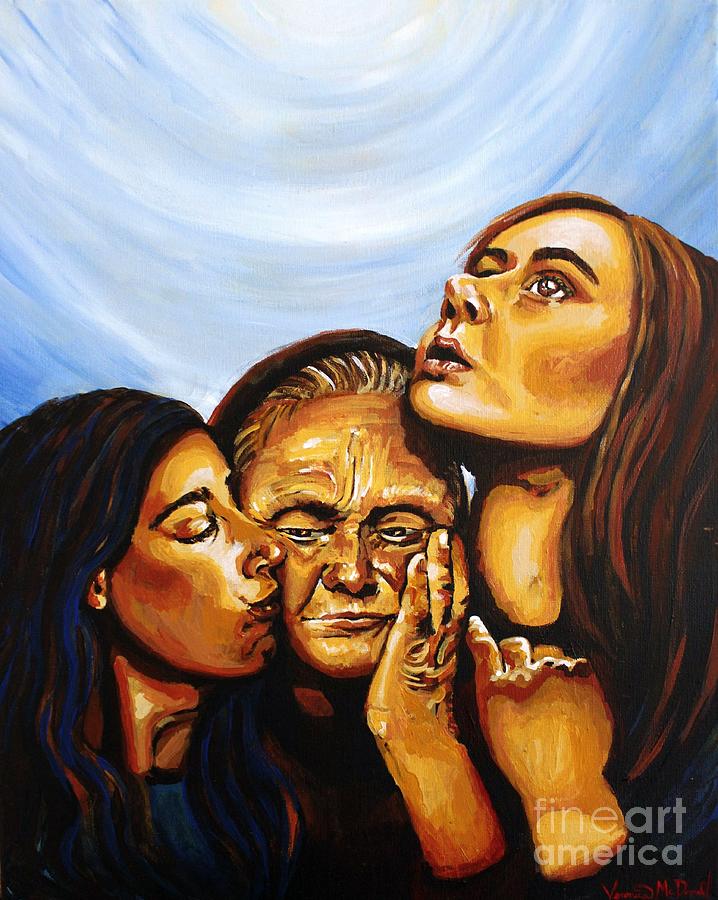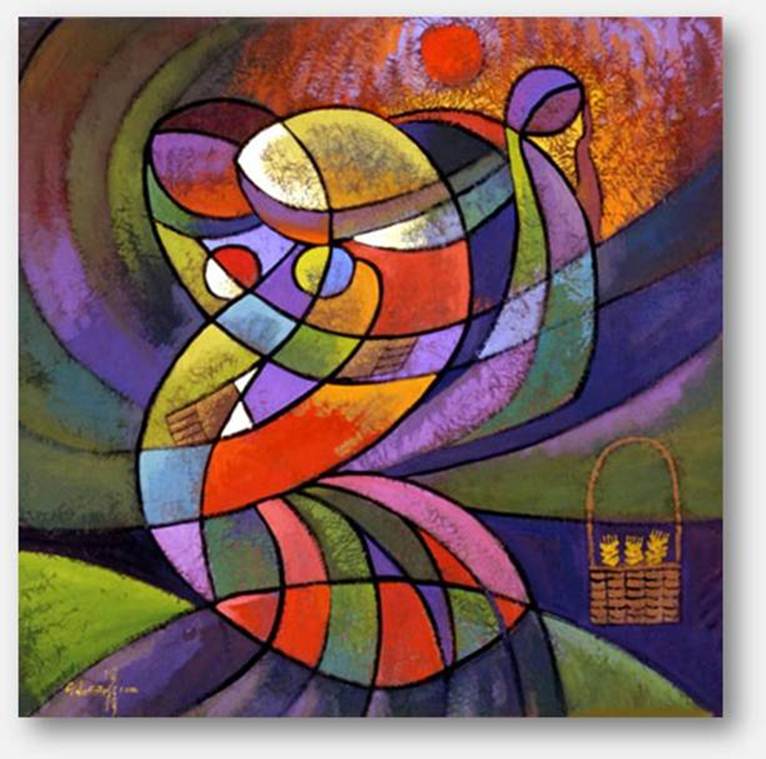It has a quote that is among the most treasured for many. When the widow Naomi decides to leave the place the family fled to in a past famine and return to her country at Bethlehem she has two widowed daughters in law who were Moabites, local women from where they had taken refuge. She tells them to go back to their mother's homes but Ruth clings to her and says -
'“Don’t urge me to leave you or to turn back from you. Where you go I will go, and where you stay I will stay. Your people will be my people and your God my God. Where you die I will die, and there I will be buried. May the Lord deal with me, be it ever so severely, if even death separates you and me.”
 |
| https://fineartamerica.com/featured/ruth-naomi-and-orpah-veronica-mcdonald.html |
The book of Ruth is the focus for 'Bible Month' 2020 and so many churches are looking at it and considering its message. As part of a day of reflection for our staff team led by Dr Rachael Starr (tutor in Biblical Studies at the Queen's Foundation, Birmingham) we were asked to imagine a letter to one of the characters in this story. These are my thoughts addressed to Orpah -
Orpah,
You and Ruth accepted this family of outsiders, of economic
migrants, coming to your country with nothing, adding to the mouths to feed.
Famine knows no boundaries, was life tough in Moab too even if better than in
Judah?
But you were willing to mix with them, so much that you
married one. What did that mean for you?
Was it love, surely it would not have been seen as an advantageous match for
you? Or was there something that left you without options in your own
people? Or did the family take you and
Ruth so that they would be more part of your community, more integrated,
assimilated, accepted?
What did it mean for your identity to marry the
immigrant? Could it have been a blending
of cultures? Or did you have to set your Moabite ways aside? Were you claimed
by the immigrant faith, did it shape you within or just hide your own ways?
And after your widowhood, your sisterhood with Ruth, when
your mother in law decided to leave your country, what then? Legally bound
together, setting out on the road, then a choice.
‘Go back to your mother’s house, find a new husband, a new
future there’
Was it a warning, had you considered the implication of
being a Moabite in Judah, where Moab was seen as the enemy the pagan, those who
tempt Godly people to wrong ways….?
Was this behind Ruth’s pledge to take on Naomi’s faith and
her God – to be as little Moabite as possible, to deny her own roots in order to
be more acceptable, to have a better hope in Bethlehem?
Yet in the Bethlehem fields she was just
called Moabite, foreigner, ‘not one of us’, even with her commitments she faced
the prejudice. Only because she supported Naomi, working in ways the older
woman’s body would not, is she praised – valued not as herself but for the sake
of another who IS one of us? Only to be
protected from assault because of Naomi?
 |
| By He Qi info here https://pages.stolaf.edu/lagerqui/d-chaidez/ |
Did you glimpse this ahead? Did you glimpse the future of
being ‘redeemed’ being married off to a relative without choice following the
laws of Moses, this culture you were not born into?
You chose to turn back, to go to a place where you were not a foreigner, where people would remember you as a child, would know your kin, your place among them. But was it that easy?
You chose to turn back, to go to a place where you were not a foreigner, where people would remember you as a child, would know your kin, your place among them. But was it that easy?
As Naomi and Ruth travelled with each other you travelled
alone, as Naomi would be able to testify to Ruth’s story as a widow, you
travelled alone. Explaining your story
alone.
Was there an embrace? A welcome home of the prodigal? Or
were you treated as tainted by your time in the family of outsiders?
Were you
seen as a burden – married off to be someone else’s responsibility but now back
looking for provision in your birth family.
Someone who would be unwanted by any other ‘decent’ husband now, a
reminder to everyone of the immigrants, that they may be glad to see the back
of.
Were you now neither of your people nor Naomi’s people? Caught
inbetween? Whereas Ruth chose Naomi’s people, faith and future over her
heritage, did you wrestle with what it means to be in the gap? Forever changed
and yet all things at once – a Moabite woman; a wife of the people of Judah –
did you feel the tensions in your own heart? Or did you find your voice as
yourself, as an individual?
Was that voice heard, rejected or ridiculed? Were you
silenced or did you bring something new to the community of your ‘mother’s
house’?
I wonder, I wonder…..
